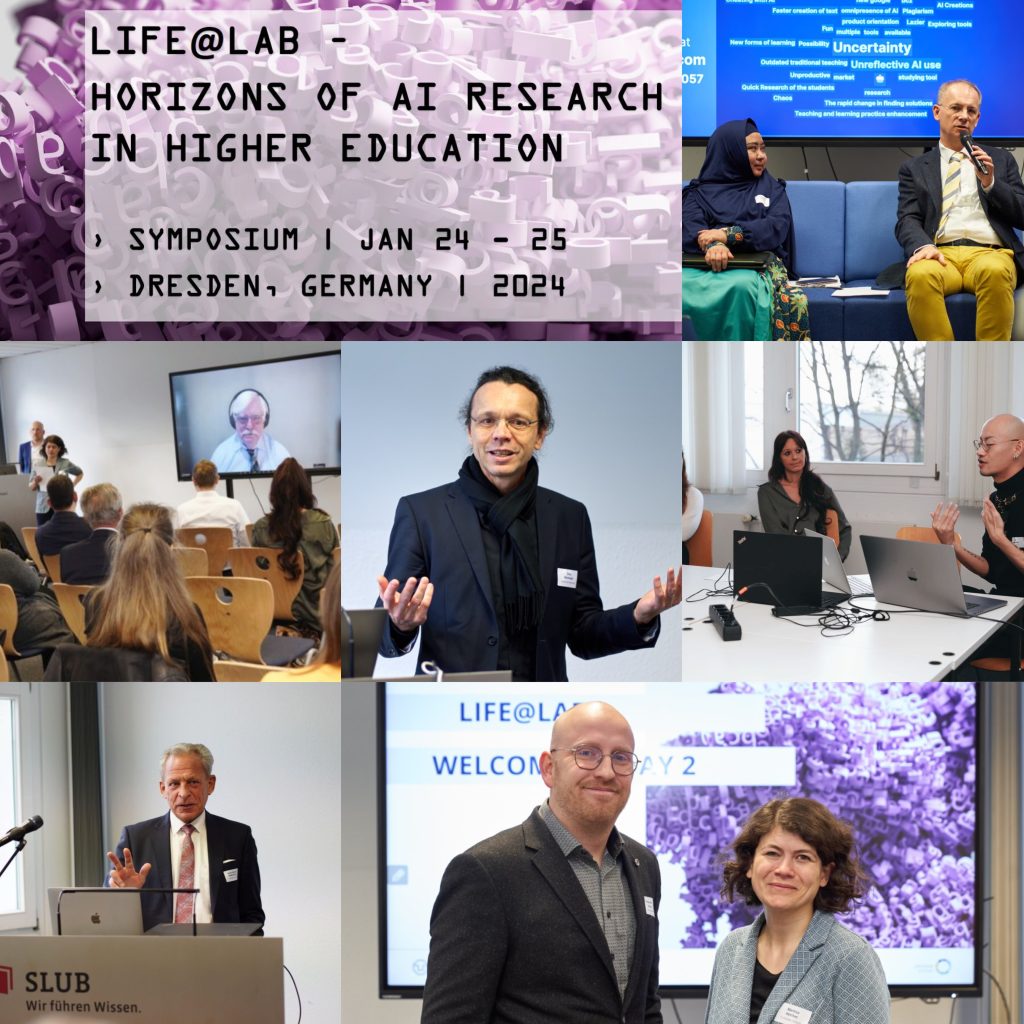
We are pleased to offer a recap of the „Life@Lab – Horizons of AI Research in Higher Education“ symposium, held at the SLUB Open Science Lab at Technische Universität Dresden from 24 to 25 January 2024. This two-day event brought together experts from around the world to discuss the role of artificial intelligence in higher education, focusing on its potential to enhance learning and teaching.
The symposium featured discussions that delved into the practical and theoretical applications of AI, highlighted by keynotes from:
- Professor Chris Dede, Harvard University, USA, and
- Professor Dirk Ifenthaler, University of Mannheim and Curtin University, Australia.
Our thanks go to all participants for their valuable insights.
As we continue to explore AI’s implications for higher education, we look forward to fostering further dialogue on this topic. We encourage the academic community to join us in this exploration, sharing their thoughts under the hashtag #LifeLabAIHorizonsHE.
This event was realized through collaboration with:
- Arbeitskreis E-Learning der Landesrektorenkonferenz Sachsen,
- Center for Scalable Data Analytics and Artificial Intelligence (ScaDS.AI) Dresden/Leipzig
- Center for Open Digital Innovation and Participation (CODIP) at TU Dresden
- Sächsische Landesbibliothek — Staats- und Universitätsbibliothek Dresden (SLUB).
This symposium was an integral part of the nationwide project „Konzertierte Weiterbildungen zu künstlicher Intelligenz in der Hochschullehre“ initiated by the Netzwerk Landeseinrichtungen für die digitale Hochschullehre (NeL) and funded by the Stiftung Innovation in der Hochschullehre.
We appreciate the collaborative effort that made this symposium a noteworthy occasion and look forward to engaging in ongoing discussions about the integration of AI in higher education.
The event’s photos by Steffen Schreiber can be found here. Feel free to use them with our hashtag: #LifeLabAIHorizonsHE.
The event’s presentations can be found here.
We are currently processing the materials from the symposium and will be regularly updating the links.
